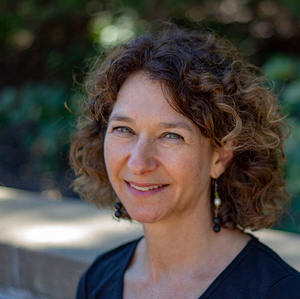"Unraveling organochlorine-respirers and organochlorine respiration" by Paige Novak

Abstract
Chlorinated organics, produced by man for uses such as degreasing, insulation, and fumigation, are some of the world’s most hazardous compounds, causing effects from cancer to liver damage. They contaminate tens of thousands of sites in the US alone. About 20 years ago, bacteria that were able to “breathe” some of these chlorinated compounds (called organochlorine respirers), and thereby detoxify them, were discovered. The fact that some of these bacteria actually required these compounds to grow and survive was thought to be amazing. Scientists and engineers have since debated how these organisms came to be, whether they had a niche in uncontaminated environments, and how we could best harness their abilities to clean up contaminants. Our recent work has focused on determining whether organochlorine respirers have a natural role in the environment, what controls their numbers and activity in uncontaminated sites, and whether non-respiratory dechlorination processes might be important for contaminant degradation. The overall goal of this work is to develop better and safer remediation methods and begin to unravel global chlorine cycles.
Biography
Paige Novak is a professor and the Joseph T. and Rose S. Ling Chair in Environmental Engineering in the Department of Civil, Environmental, and Geo- Engineering at the University of Minnesota. She also codirects Minnesota’s Discovery, Research and InnoVation Economy (MnDRIVE) Initiative: Advancing Industry, Conserving our Environment. Novak’s area of interest is the biological transformation of hazardous substances in sediment, groundwater, and wastewater, resource recovery, and particularly how engineers can influence these processes. She received her B.S. in Chemical Engineering from The University of Virginia and her M.S. and Ph.D. in Environmental Engineering from The University of Iowa. Novak was an Aldo Leopold Leadership Program Fellow in 2009 and has been the recipient of several awards, including the Sara Evans Woman Scholar/Leader Award (UMN, 2013), the Bill Boyle Educator of the Year Award (Central States Water Environment Association, 2013), the Samuel Arnold Greeley Award (American Society of Civil Engineers, 2011), and the Paul L. Busch Award (The Water Environment Research Foundation, 2007). She was named Fellow of the Water Environment Federation in 2016 and of the Association of Environmental Engineering and Science Professors in 2019. From 2013 to 2019 Novak served on the National Research Council’s Standing Committee on Chemical Demilitarization. She is currently the Editor in Chief of the Royal Society of Chemistry’s journal Environmental Science: Water Research and Technology.
Seminar sponsored by the Department of Civil and Environmental Engineering and Earth Sciences
Downloads:
Novak Seminar Flyer